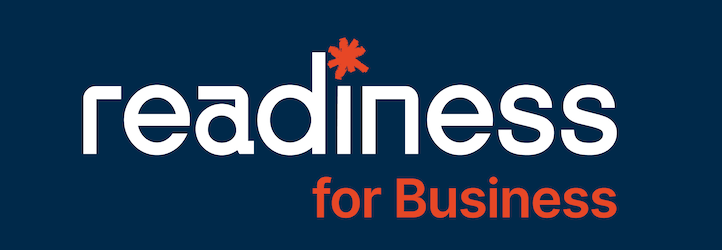By Christi Malthouse
You are what you eat. A common phrase that is often misinterpreted to mean food intake determines physical appearance.
But what about vitality? Emotions? Moods? Energy levels? Behaviours? Thoughts? Sleeping patterns? Focus?
If you knew that food could affect and enhance all of these things, would it change the way you eat and think about food?
Just as food fuels your body, the nutrients in different foods feed your brain. A well-fed brain is like a re-charged car battery – able to function at its optimum. And the flow-on effect of that is enormous, providing the cognitive ability to regulate emotions, to concentrate, to physically perform, to sleep, to deal with stress better and so on and so on.
Why is nutrition important for your mental health?
There is a direct link between nutrition and mental health and wellbeing.
Scientists are still researching the link between the gut and the brain, but we already know that our nervous system and our gut are connected by neural pathways which help to regulate both our mood and basic gut functioning.
So, basically, a healthy gut provides great support for a healthy brain. Which means the opposite is also true: a compromised gut can put pressure on brain function and often leads to mental health issues such as depression.
“Our gut bacteria respond according to the different food that we eat. Eat junk food too often, and you’re likely to be starving the good bacteria in your gut of the fibre they need to thrive. This may lead to poor health and possibly even chronic inflammatory conditions that are related to depression,” says The Good Nutrition Co. CEO and dietitian, Nicole Dynan.
What are brain foods?
Foods with quality nutrients are the best foods for your gut, and therefore your brain health. While your overall diet quality is key, some nutrients to focus on for brain health are B Vitamins, Omega-3, Selenium, Tryptophan, and resistant starch.
Nicole says, “Slowly digested carbs also provide long lasting energy for the brain.”
“Eating healthy, whole foods like fruit and veggies, wholegrains, lean meat and seafood, and dairy foods means we’re more likely to meet our needs for vitamins, minerals, antioxidants and fibre, which impacts our gut and brainhealth.”
And when it comes to the gut Nicole suggests eating a diet rich in fermentable fibres (prebiotics) such as vegetables, fruits, nuts and whole grains, and fermented foods such as sauerkraut, kimchi, tempeh, or probiotic yoghurts and probiotic kefir to help support your good gut bacteria and ease inflammation and the risk of chronic health conditions.
How can you change your eating habits?
Nicole provides 5 simple tips to help you change your eating habits:
-
Eat a nutritious breakfast.
Including slow-release carbohydrates and a good serve of protein at breakfast will help to keep you feeling full and set up your day. Try eggs on wholegrain toast or Greek yoghurt with fruit and oats. - Pre-prepare your food.
By pre-planning you will be more mindful of what you are eating throughout the day. By pre-preparing you are making it easier to make a healthy meal and snack choice when you are short of time. Planning your meals (and your snacks) is the single best way to ensure health success, save money and shop sustainably for the planet (i.e. less food waste). - Be mindful.
Tune into your body and listen to your physical hunger cues, rather than being guided by the clock. Slow down and chew your food. Not only will you enjoy it more, but it will help to aid digestion and prevent overeating. - Try new foods!
Theming your dinners can boost motivation at mealtimes. Themes like ‘meat free Monday, Taco Tuesday and Fun Friday (home-made versions of take-away options like pizza or burgers) can help you cut back on meat and add more plants to your diet. Keep a list of your favourite recipes that correspond with your themes! There’s nothing like a change of routine to provide you with inspiration and motivation - Hydrate!
Hydration is important for our bodies to function well and our brains to think well. It also helps us to regulate our eating. While we use the mantra of ‘2L before 2pm’, the best way to check that you are drinking enough is to check that your urine is pale yellow in colour.
Nutrition in the workplace
Nutrition is one area that is often overlooked in corporate wellbeing programs that tend to focus on physical activity and mental health initiatives like mindfulness, and yet it is as equally important for your overall wellbeing.
According to a 2019 Forbes Magazine article, the World Health Organization (WHO) found that optimal nourishment can raise national (USA) productivity levels by 20%. Healthy employees are happier, calmer, more engaged, sleep better and get sick less often.
So, it makes sense that employers provide healthy food options for their employees to benefit both the individual and the organisation.
How can you improve employee nutrition?
- Start by reviewing the food that is on offer in your workplace, either from vending machines, canteens or cafes, and make it a mission to provide healthy food options. This could include onsite lunches or food deliveries for meetings and events or providing a weekly fruit bowl. Healthy food shouldn’t cost more, it’s just a matter of finding the right provider.
- Decide to celebrate birthdays once a month, rather than every time there is a birthday.
- Make filtered water available to your employees and encourage them to drink more of it.
- And finally, offer healthy eating information and education. Readiness and The Good Nutrition Co. have partnered to provide business leaders and their employees with plenty of tips for healthy eating and nutrition in the workplace via the Readiness complete wellbeing platform.
As many Australian employees return to the workplace, every small step towards readjusting to an office environment will count in a big way. If the importance of nutrition is emphasised as much as physical fitness, sleep and mental health, then the key pillars of wellbeing will be well on the way to being met, and employees will be content and productive.
So, eat, drink and be healthy! Afterall, you are what you eat!
Readiness is here to help. To learn more about how Readiness can support the wellbeing of your employees, click here or contact us.

